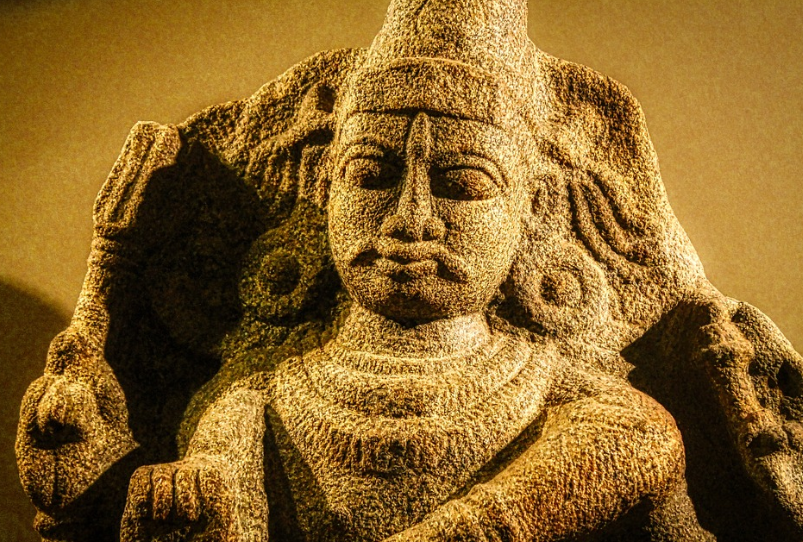Can Mantras Be Chanted Silently?
Discover the best places to chant mantras silently.

Selfpause Affirmation App
Download the app to get 1,000’s of affirmation meditations and everything you need to write, record and listen to your own.
You might be wondering, “Can mantras be chanted silently?” The answer is “yes”. These chants are very powerful and have the ability to train the mind and bring wisdom from within. Chanting them silently is an excellent way to focus your attention while allowing your mind to become still and quiet.
Mantras are powerful tools to train the mind

Mantras are words or phrases repeated inwardly or aloud. Their use is an ancient tradition dating back to the Vedic period. They are traditionally composed of Sanskrit words. They have found use in many religions, including Hinduism, Buddhism, Jainism, and Sikhism. Although mantras do not necessarily have a literal meaning, they are incredibly powerful tools to train the mind.
Mantras are often used in the context of yoga, and they are used during silent repetitions to keep the mind focused. These mantras are more like affirmations than words and help you stay anchored to a specific state of mind. They help train the mind to think in a specific way and to focus on a specific intention.
The power of mantras can be felt throughout the day. They are particularly effective during anxious moments when worrying about the future is clouding the mind. They also help you sort out muddled thoughts. These can include thoughts that are based on other people’s problems. Clearing these thoughts will give you a sense of clarity.
While mantras may seem like a simple chants, they can be very powerful tools for meditation. They are effective in bringing the highest focus to a goal and can be recited in many contexts. They are particularly effective when used in tandem with meditation, as they help retrain the brain to stay focused.
They help dissolve yourself

A mantra can be chanted silently to dissolve your mind. The single syllable “Aum” is a common mantra, and is also known as the “sound of the universe.” The Aum mantra helps us to live in harmony with nature and is also a powerful way to dissolve ourselves. Another common mantra is the 5-syllable “Aum Namah Shivaya,” which calls on the Hindu god Shiva to dissolve your ego. Alternatively, the 6-syllable Om Mani Padme Hum is a great mantra, as it represents the essence of the Buddha’s teachings and is known to bring peace and compassion into our lives.
A mantra is a chant that is spoken silently to a higher power. It is a powerful prayer that helps us reach the Source of our being. A mantra is so powerful that even before it is uttered, it dissolves the listener into silence.
Another effective self-help technique is affirmations. Affirmations are a collection of statements about your thoughts and feelings. They help you feel good about yourself and make you feel better. When chanted silently, they can reduce blood pressure and increase blood flow, and even oxygenate the brain.
It is important to focus while chanting a mantra. It is advisable to close your eyes while chanting it silently. Moreover, a mantra should be pronounced correctly. If you are unsure of your pronunciation, try practicing for 10 minutes daily. This will help you develop the capacity to maintain a consistent practice.
They bring wisdom from within themselves

Mantras are sounds and vibrations that can be repeated repeatedly. When repeated aloud or silently, mantras can have a transformative effect on the body and mind. They are used for healing, transformation, and spiritual awakening. Mantras are essentially chants that allow practitioners to experience higher consciousness and to bring wisdom from within themselves.
Mantras are the language of masters who long to impart their knowledge. But without proper training, the seeker is not able to receive direct knowledge of the supreme truth. For example, Moses laid his hands on Joshua, Krishna on Uddhava, and Christ gave the Key of the Word to Peter. Similarly, mantras come from the supreme truth and flow down to the seeker in varying degrees.
Mantras are generally chanted by repeating the same sound or phrase several times. When chanted regularly, the mantra is ingrained into the mind. It is important to explain the purpose of the mantra when chanting it out loud. Otherwise, it is not effective.
Mantras are used in meditation to release tension and improve mental and emotional health. Spiritual author Emma Mildon recommends using the mantra “woooosaaaaaaaaaaaaahh” when she’s losing her patience. This mantra is a long, drawn-out sigh, which is appropriate when one feels fed up beyond words.
They can be chanted silently
There are many benefits of chanting mantras, and they are not limited to spiritual healing. They can help us to connect with the divine, nature, and our deeper selves. Mantras are symbolic words that represent different aspects of the human mind, consciousness, and spirit. They can also elevate and calm our moods. They help to reinforce the changes we make during meditation. Mantras have a universal vibration, and they have powerful effects on our brain activity.
The Vedas contain many rules for proper pronunciation and intonation. The best way to learn these rules is to practice with a guru. A guru will be able to teach you the proper pronunciation and frequency of mantras. It takes between 17 and 20 years of practice to become a Ghanapati, or master chanter. When chanting, be aware of your thoughts. Thoughts are not bad, but they are uninvited guests. So, when you chant mantras, try not to get caught up in these thoughts.
There are many benefits to chanting mantras silently, including relaxation. The energy lingers in your body after you chant. It can help you focus on your meditation practice, and can be helpful during mindless tasks like driving. You can also use mantras during asanas.
They are an invocation to Lord Shiva

Chanting Shiva mantras is a powerful way to invoke this god. There are many different Shiva mantras to choose from. Reciting these mantras will help you to become more energetic and experience a host of other benefits. You will be able to gain inner peace by reciting these mantras.
Hindu mantras are often spoken aloud, but they may also be silently chanted in the mind. In addition to being an invocation to Lord Shiva, mantras are also an effective tool for meditation. These prayers are often divided into six limbs called Shadanga, which are the Seer (Rishi), Deity (Devata), Seed (Beeja), Energy (Shakti), Poetic Meter (Chanda), and Lock (Karna).
Chanting the Shiva mantra silently is one of the most beneficial ways to combat stress. The mantra is also thought to help reduce blood pressure and reduce the risk of premature death. The best time to chant the Shiva mantra is during the three sandhya, which are before you sleep, before you eat, and before exercise. You should chant the mantra silently 108 times each day.
The original vows of Buddhas and Bodhisattvas are also included in the mantras. By repeating these vows, you can create merit with no bounds.
They are a tool to train the mind
The practice of chanting a mantra is known as mantra meditation. In mantra meditation, you concentrate on chanting the same word or phrase over again while maintaining attention to your breathing. Often, mantras are connected with specific contemplations or visualizations. These help you to develop concentration and loving-kindness.
Mantras are chants of a sacred word or phrase that are repeated inwardly or out loud. They originated in the Vedic tradition and have been used in Buddhism, Jainism, and Sikhism. While some mantras carry a literal meaning, their value is primarily derived from their sound. They can be long or short, but they all have one thing in common: they are powerful tools for training the mind.
One of the most effective tools to train the mind is repetition. Repeating a word or phrase repeatedly quiets distracting thoughts and clears the mind. It works like an earworm, catching the mind’s attention and training it to be quiet and focused. This leads to clarity and the best use of energy.
In addition to meditation, mantras are also helpful for calming the mind. For example, some people who suffer from anxiety may find that om has a soothing effect. Repeating the mantra on a regular basis can help to calm the mind.
Our Top FAQ's
Chanting mantras silently is a way of using sound to focus the mind and cultivate a sense of inner peace and calm. It can be an effective form of meditation or mindfulness practice, and it can also be used to invoke specific energies or deities associated with the mantra. Some people find that silently chanting mantras helps them to connect with their inner self and find a sense of balance and clarity in their lives.
Some people believe that silently chanting mantras can be just as effective as chanting them aloud, while others believe that the vibrations created by chanting aloud are necessary for certain mantras to be effective. In general, the benefits of chanting mantras will depend on the individual and their own personal experience with the practice. Some people may find that silently chanting mantras is more effective for them, while others may prefer to chant aloud. It may be helpful to try both methods and see which one works best for you.
There is no one-size-fits-all answer to this question, as different people may find that different mantras are more suitable for silent chanting. Some people may find that certain mantras are more calming when chanted silently, while others may find that certain mantras are more invigorating when chanted aloud. It may be helpful to experiment with different mantras and see which ones work best for you when chanted silently.
Here are a few tips for silently chanting mantras effectively:
- Find a quiet, comfortable place where you can sit or lie down and focus on your breath and the mantra.
- Close your eyes and take a few deep breaths to help you relax and center yourself.
- Begin silently repeating the mantra to yourself, focusing on the sound and the meaning of the words.
- If your mind wanders, gently redirect your focus back to the mantra.
- Try to keep a steady rhythm and pace while silently chanting the mantra.
- Continue silently chanting the mantra for as long as you like, gradually increasing the length of your practice over time if you wish.
Silent chanting of mantras can be a form of meditation or mindfulness practice, as it involves focusing the mind and cultivating a sense of inner peace and calm. However, it is just one of many different types of meditation and mindfulness practices that are available. Other common practices include sitting meditation, walking meditation, and yoga, among others. Ultimately, the best meditation or mindfulness practice for you will depend on your personal preferences and needs. It may be helpful to try a few different practices to see which one works best for you.
